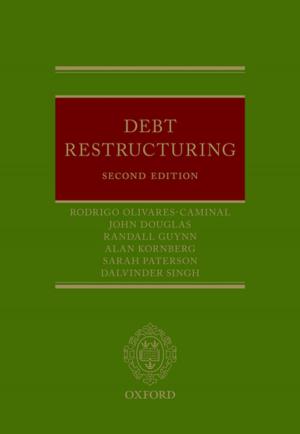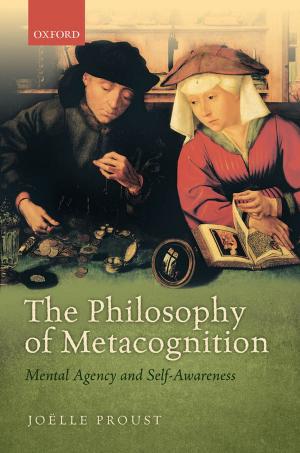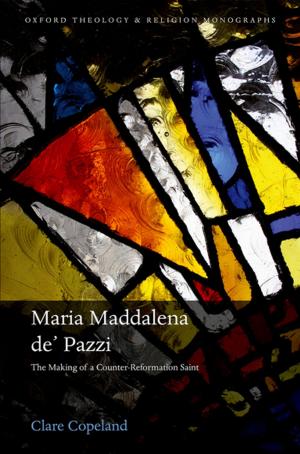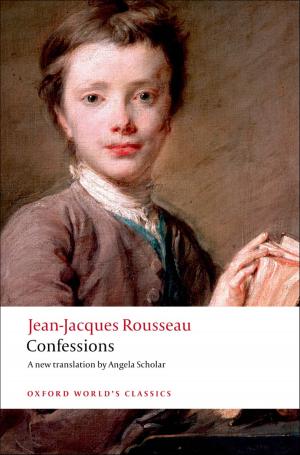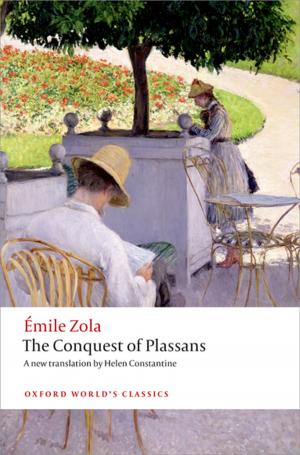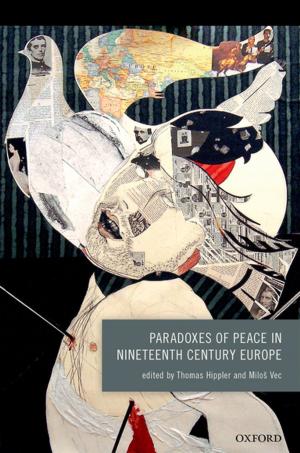Dryden and Enthusiasm
Literature, Religion, and Politics in Restoration England
Fiction & Literature, Literary Theory & Criticism, Poetry History & Criticism| Author: | John West | ISBN: | 9780192548375 |
| Publisher: | OUP Oxford | Publication: | February 13, 2018 |
| Imprint: | OUP Oxford | Language: | English |
| Author: | John West |
| ISBN: | 9780192548375 |
| Publisher: | OUP Oxford |
| Publication: | February 13, 2018 |
| Imprint: | OUP Oxford |
| Language: | English |
In Dryden's writing, enthusiasm is a source of literary authority. It signals divinely inspired literary creativity. It is central to Dryden's theoretical defences of the relationship between literature and the passions. It is also crucial to his poetic practice in a variety of genres, from odes to religious poems to translations. Enthusiasm, for Dryden, ultimately enables literature to break into regions of knowledge beyond rational human comprehension. Yet after the rise of radical sectarianism in the 1640s and 1650s, where claims of inspiration legitimised challenges to established political authority, enthusiasm also carried dangerous theological and political connotations. In Dryden's writing, enthusiasm is thus also a pejorative term. It is used to attack political radicals and religious dissenters. In the aftermath of the Civil Wars, it is at the root of many perceived threats to the stability of the Restoration state. This book explores the paradoxical place of enthusiasm in Dryden's writing and the role he conceived for it in art and society after the violent upheavals of the mid seventeenth century. Works from across his oeuvre are explored, from his early essays and heroic plays to his translations, via new readings of his famous political and religious poems. These are read alongside other major writers of the period, like Milton, and less well-known authors, such as John Dennis. The book suggests new ways of conceptualising the relationship between literary practice and ideological allegiance in Restoration England. It reveals Dryden to be a writer who was consistently interested in the limits of what literature could express, what feelings it could provoke, and what it could make people believe at a time when such questions were of uncertain political importance.
In Dryden's writing, enthusiasm is a source of literary authority. It signals divinely inspired literary creativity. It is central to Dryden's theoretical defences of the relationship between literature and the passions. It is also crucial to his poetic practice in a variety of genres, from odes to religious poems to translations. Enthusiasm, for Dryden, ultimately enables literature to break into regions of knowledge beyond rational human comprehension. Yet after the rise of radical sectarianism in the 1640s and 1650s, where claims of inspiration legitimised challenges to established political authority, enthusiasm also carried dangerous theological and political connotations. In Dryden's writing, enthusiasm is thus also a pejorative term. It is used to attack political radicals and religious dissenters. In the aftermath of the Civil Wars, it is at the root of many perceived threats to the stability of the Restoration state. This book explores the paradoxical place of enthusiasm in Dryden's writing and the role he conceived for it in art and society after the violent upheavals of the mid seventeenth century. Works from across his oeuvre are explored, from his early essays and heroic plays to his translations, via new readings of his famous political and religious poems. These are read alongside other major writers of the period, like Milton, and less well-known authors, such as John Dennis. The book suggests new ways of conceptualising the relationship between literary practice and ideological allegiance in Restoration England. It reveals Dryden to be a writer who was consistently interested in the limits of what literature could express, what feelings it could provoke, and what it could make people believe at a time when such questions were of uncertain political importance.


